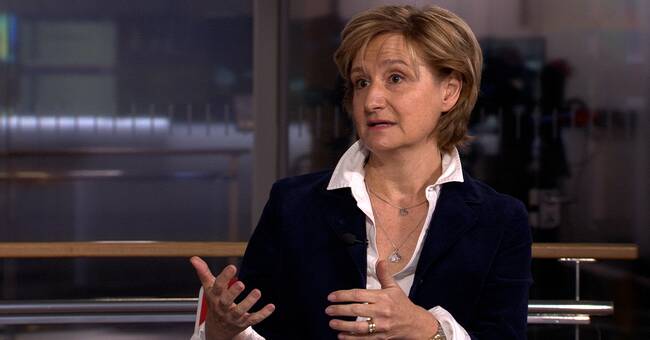The relationship between Sweden and Russia is very tense right now.
On Tuesday, Minister of Defense Peter Hultqvist (S) said that Sweden can send troops to Ukraine, to which the Russian embassy in Stockholm reacted immediately.
The embassy wrote on its official Facebook page about Hultqvist's statement and pointed out that Sweden lost the war in Poltava in 1709.
"We would like to remind Mr Hultqvist that he is not the first military leader in Sweden to try to intimidate Russia with the power of his heroic army by planning to send his military to Ukraine."
wrote the embassy.
- This is Russia's way of ridiculing Sweden, says Carolina Vendil Pallin to SVT's Morgonstudion.
Migrants and soldiers
Last week, Poland accused Russia of orchestrating the ongoing migrant crisis along the Polish-Belarusian border.
At the same time, Ukraine warns of Russia's increased troop presence at the countries' border areas, something that the military alliance NATO has also said it is keeping a close eye on.
According to some sources, Russia has mobilized about 100,000 soldiers on the Ukrainian border, in addition to the soldiers and weapons they placed on the Crimean peninsula that Russia annexed in 2014.
How likely is a Russian invasion of Ukraine?
- What can be stated is that Russia has a strong military capability, it has been used before, says Vendil Palin.
However, she can not comment on whether Russia is behind the migrant crisis at the border between Belarus and Poland.
- It is impossible to say anything about.
The crisis worsened when Russia announced in mid-October that it was closing its NATO delegation in Brussels and a NATO office in Moscow.
These are important diplomatic channels in the relationship between Russia and the West.
Diplomats are sent home
In recent years, about 600 diplomats have been sent home in the diplomatic war between Russia and the West - as many pages, which makes the relationship almost as tense as during the Cold War.
- It has deteriorated for a long time and it is still deteriorating, says Carolina Vendil Pallin.

